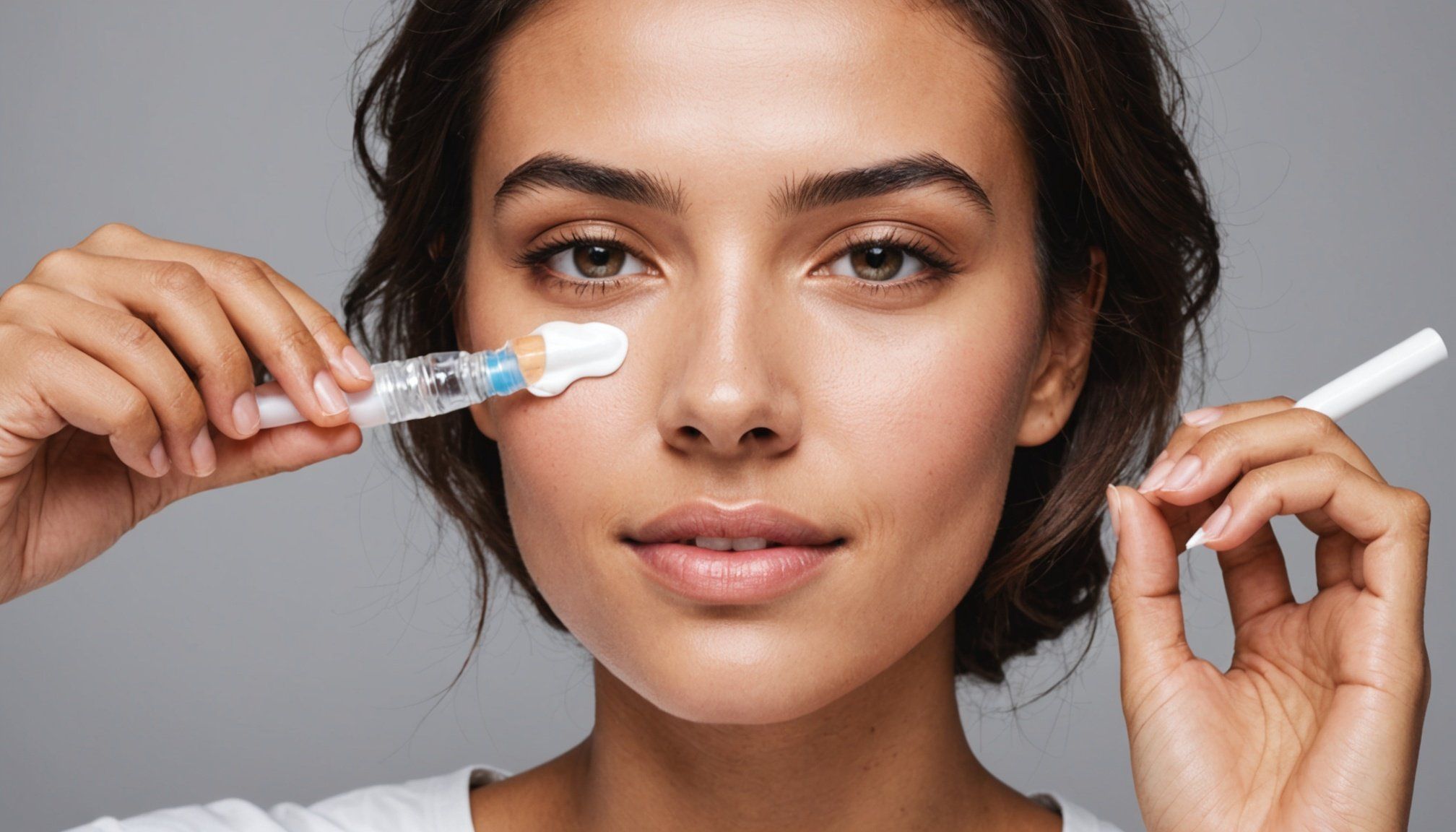Understanding Skin Hydration
Hydration is essential for maintaining healthy, vibrant skin. It ensures that skin cells function effectively, providing skin moisture and protection against environmental stressors. Products that enhance water retention within the skin help maintain elasticity and reduce the appearance of fine lines and dryness.
Several factors impact skin’s hydration levels, including age, genetics, climate, and lifestyle habits. Understanding these can help you address hydration deficiencies properly. Environmental elements like cold weather or air conditioning can deplete natural moisture, requiring adaptive skincare approaches.
Also to discover : Ultimate rainy day care for synthetic leather shoes: top tips for keeping them stylish and protected
Each skin type has distinct hydration needs. For instance, oily skin isn’t necessarily well-hydrated. It may produce excess oil to compensate for a lack of moisture. Conversely, dry skin types need intensive hydration to restore balance and suppleness. Sensitive skin requires gentle hydration solutions to prevent irritation or allergic reactions.
By understanding the nuances of skin types and identifying specific needs, tailored hydration strategies can be developed, supporting overall skin health. Proper hydration practices not only enhance appearance but also contribute to the skin’s barrier function, making it more resilient to external threats. Prioritising skin hydration with effective products and methods empowers you to maintain a healthy complexion.
Topic to read : Elevate Your Style: Blending Chunky Sneakers with Feminine Dresses for the Ultimate Fashion Balance
Recommended Hydrating Products
Choosing the right hydrating products is crucial for achieving and maintaining optimal skin moisture and health. Among the myriad of skincare options, serums and moisturizers stand out as essential components in any skincare routine focused on hydration.
Top Recommended Serums for Hydration
Serums formulated with ingredients like hyaluronic acid and glycerin are particularly effective in retaining moisture. Hyaluronic acid, known for its ability to hold up to 1,000 times its weight in water, provides intense hydration and plumps the skin, reducing the appearance of fine lines. Meanwhile, glycerin acts as a humectant, attracting moisture to the skin, enhancing its suppleness.
Effective Moisturizers for Different Skin Types
Selecting a moisturizer that caters to your specific skin type is vital. For oily skin, a lightweight, non-comedogenic gel moisturizer may prevent pore clogging while delivering needed hydration. In contrast, dry skin benefits from a richer cream or ointment-based product that ensures deeper penetration and longer-lasting moisture. Sensitive skin requires formulations free from fragrances and harsh chemicals to prevent irritation.
Key Ingredients to Look For
Apart from hyaluronic acid and glycerin, look for ceramides which strengthen the skin’s barrier, and aloe vera, known for its calming and hydrating properties. These ingredients ensure that your skin remains hydrated, resilient, and radiant.
Step-by-Step Skincare Routine
Creating an effective skincare routine involves understanding the ideal order and application techniques for maximum benefit. Tailor your routine to both morning and evening needs to ensure balanced hydration throughout the day.
Morning Routine
Begin with a gentle cleanser to remove overnight impurities without stripping moisture. Follow with a hydrating toner to prep your skin for further treatments. Apply a lightweight serum that contains hyaluronic acid or glycerin to boost moisture levels. Next, use a suitable moisturizer based on your skin type. Finish with a broad-spectrum sunscreen to protect against UV damage and environmental stressors.
Evening Routine
Your evening routine should focus on rejuvenation and hydration. Double cleanse to effectively remove makeup and impurities from the day. Follow with a richer serum to penetrate overnight, delivering intense moisture. Apply a nourishing moisturizer or night cream that offers deeper hydration as your skin repairs itself. Incorporating a product with ceramides might support the skin’s natural barrier.
Special Treatments
Introduce special treatments like masks or exfoliants into your routine for added hydration benefits. Use these treatments 1-2 times weekly. Ensure you choose those that suit your skin’s needs, whether targeting hydration, brightening, or exfoliation. These treatments enhance your skin’s resilience and overall appearance.
The Science Behind Product Layering
Product layering plays a crucial role in enhancing the effectiveness of your skincare routine. By understanding how layering impacts product absorption, you can optimise hydration and ensure that each product benefits your skin fully.
When considering the ideal product order, always start with the lightest formulations like toners and serums, as they have smaller molecules that penetrate the skin more quickly. Following this, apply thicker products such as moisturizers which seal in the previous layers, maximizing their hydration effects.
The role of various ingredients is also significant in product layering. For instance, hyaluronic acid in serums attracts moisture, while ceramides in moisturizers help lock it in. Combining such ingredients can lead to improved skin moisture and increased water retention.
However, it’s crucial to allow time between applications to enable each product layer to settle adequately. This practice prevents piling and ensures that every layer can fully absorb and function.
Avoid mixing products with contradictory active ingredients, as this can hinder absorption and effectiveness. Understanding these nuances will help you develop an effective routine, balancing hydration and skin health. This structured approach enhances the benefits of each product, contributing to a resilient and glowing complexion.
Expert Tips for Effective Hydration
When it comes to skincare, expert advice can make a significant difference in maintaining optimal hydration. Insightful skincare tips can help you avoid common mistakes and improve your hydration techniques.
Common Mistakes to Avoid
One of the biggest mistakes is not accounting for seasonal changes. During colder months, skin can become drier, requiring richer moisturizers. On the other hand, summer may demand lighter formulas to cope with heat and humidity. Over-exfoliating can also strip the skin of its natural moisture, so limit exfoliation to once or twice a week.
Seasonal Changes and Impact
Seasonal shifts impact not only moisture levels but also skin’s barrier function. In winter, low humidity and indoor heating reduce skin moisture, necessitating heavier creams with ceramides or shea butter. In contrast, summer necessitates hydrating yet lightweight products to avoid clogged pores.
Professional Skincare Advice
If persistent dryness, sensitivity, or breakouts occur, seeking professional advice is essential. Dermatologists can provide personalised assessments to tailor hydration tactics effectively. They might suggest specific products or treatments not commonly available over the counter. Expert help ensures your skincare regime is both effective and safe, maximising hydration benefits.
Addressing Diverse Skin Types
Understanding how different skin types react to hydration is crucial for personalised skincare. Let’s explore some specific strategies for managing different skin types.
Oily Skin
For oily skin, hydration is still essential, even though it may seem counterintuitive. Excess oil can result from the skin’s attempt to compensate for moisture loss. Opt for light, oil-free hydrating products that balance oil production without clogging pores.
Dry and Sensitive Skin
Dry skin types require intense hydration to maintain skin moisture and elasticity. Look for rich creams infused with hydrating ingredients like hyaluronic acid and ceramides. For sensitive skin, choose hypoallergenic products that include soothing agents like aloe vera, minimizing potential irritation.
Combination Skin
Combination skin presents a unique challenge. Tailoring hydration involves addressing both oily and dry areas without exacerbating either condition. Use lightweight products on oil-prone zones and richer formulations on drier areas. This dual approach ensures balanced water retention and skin health across your face.
Customisation Is Key
Recognize and adapt your skincare routine according to your skin’s specific needs. Incorporating products suited to each skin type can significantly enhance your hydration techniques and overall skincare results. Focusing on these nuances allows you to achieve a flawless, comfortable complexion.
FAQs on Skincare Hydration
Here, we address some common questions about skincare to help debunk misconceptions and optimise your routine.
How often should I hydrate my skin?
The general guideline is to hydrate your skin twice daily—in the morning and evening. This maintains water retention and prevents dryness. However, specific needs may vary based on skin type, climate, and individual routine.
Can too much moisture harm my skin?
Yes, over-moisturising can lead to clogged pores and acne, especially in individuals with oily skin. It is crucial to choose the right hydration products for your skin type and observe your skin’s reaction. Finding a balance is key to avoiding these issues.
What is the best time to apply hydrating products?
Applying hydrating products is most effective after cleansing—both in the morning and evening. This helps the products to penetrate better and ensures optimal absorption. Night-time application plays a significant role in supporting the skin’s natural repair processes.
By understanding these hydration concerns, you can tailor your routine to your unique needs, ensuring your skin remains healthy and radiant. For personalised advice, consult with a dermatologist who can provide tailored recommendations.










